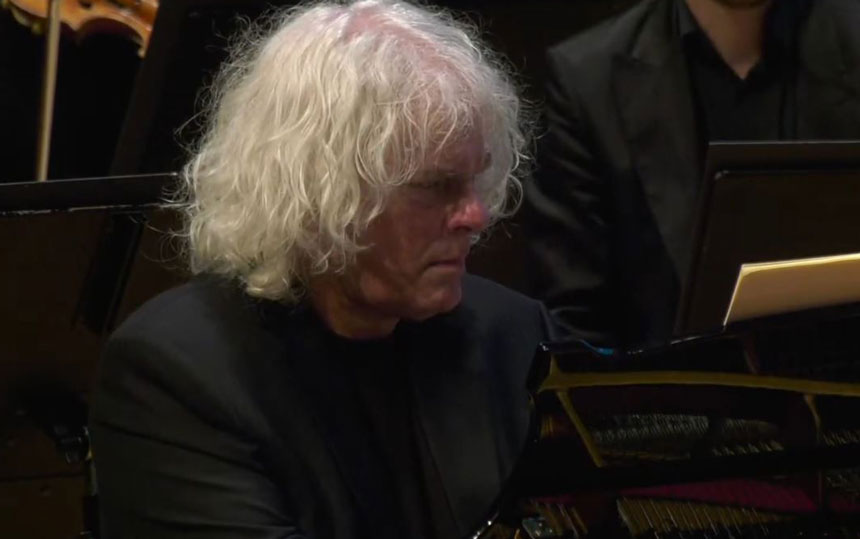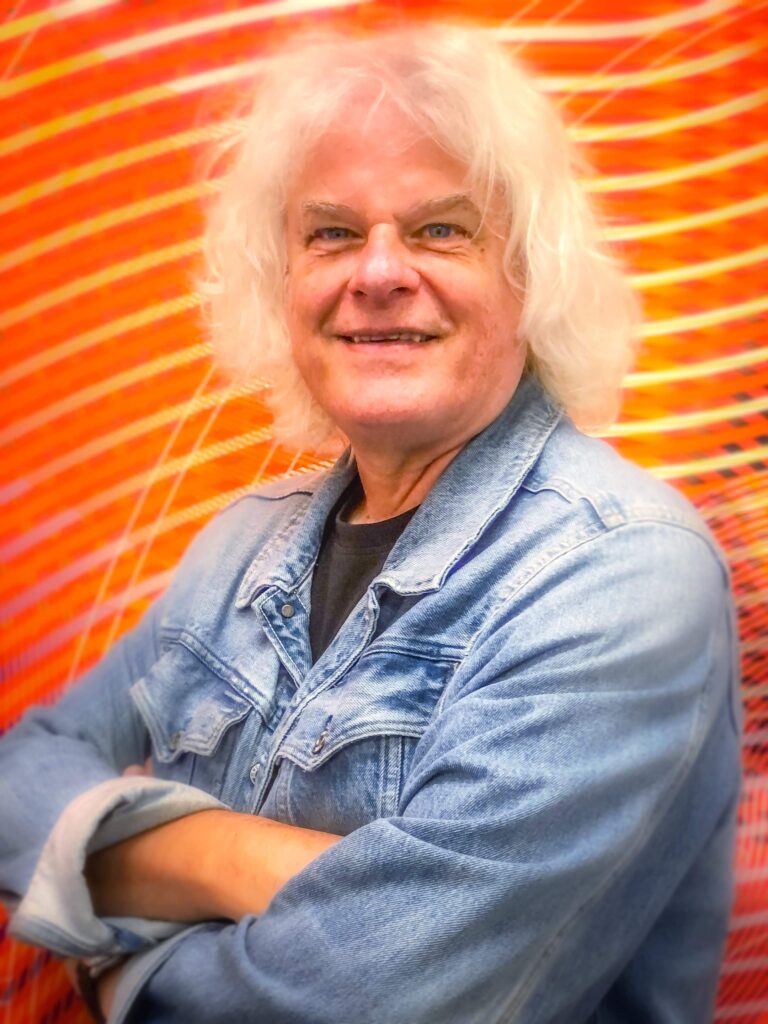A Scottish-Viennese Odyssey
When Dutch pianist Ronald Brautigam was in Sweden in September to play two piano concertos with Helsingborg Symphony Orchestra, we talked with the performer in the midst of rehearsal. The concert was recorded for Helsingborg Concert Hall Play series and – according to Brautigam – Sally Beamish’s 1st piano concerto named ”Hill Stanzas” and Mozart’s 17th, make a very fine musical combination in a concert program.

Piano Street: You are here in Sweden to perform two piano concertos with Helsingborg Symphony and conductor David Nieman. We are all familiar with piano concertos but not so much with one of its composers; contemporary British Sally Beamish. What has nourished your interest in her music?
Ronald Brautigam: I Met Sally in Manchester when I was playing with the BBC Philharmonic with Andrew Manze who used to be the conductor here in Helsingborg, and they were playing a premiere of a piece she’d written and I liked her music. I knew her music because a lot of it has come out on the same company where I record with, and it’s a sort of music that appeals to me and especially the fact that she is Scottish and my wife being Scottish too. I’ve always had a very strong relationship with the country. That was actually why I contacted her and asked if she was interested in writing a piano concerto for me, and she immediately said yes, and we met up. She came to Amsterdam, we met and talked about what sort of music and what kind of ideas I had and in the end we both came up with the idea of something inspired by the landscape of the Grampian Mountains which is the central part of the Scottish Highlands where I spend lots of time during the summer, and she went there and composed the piece in the middle of this nature between all the birds and the deer and waterfalls. And so a lot of that is incorporated into the music.
PS: So it’s basically nature based?
RB: It’s actually based on a book by a Scottish author, Nan Shepherd, who writes about her walk through the Cairngorms, and she incorporated this into the music. And in the third and fourth movement, we are suddenly tucked into Scottish Folk history and folk stories about ghosts, violinists and things. When you walk in Scotland and you’ve had a few glasses of whiskey, this sort of horror stories come naturally to you.
PS: Beamish has composed concertos for other instruments such as viola, cello, trumpet and flute and has herself a background as an orchestral (violist) musician. How would you describe this quality when it comes to writing for the piano?
RB: Well, apart from being a viola player, I think she’s a very capable pianist, although she would deny that herself, so she knows exactly what’s possible and what’s not possible. It’s a challenging piano part but all playable. I think she even tried to play it herself and that’s always a good sign. She knows how to write for the piano and after this concerto she has written two other piano concertos. There are three concertos which were written in quite a short time, a triptych where one is about the waters of Scotland, their storms and danger spots for ships and fishing and the way you can really go down. The other one is more about Scottish cities. So it’s a Scottish triptych, these three piano concertos. Nature, the water and the cities.
PS: The piano concerto you’re playing today, did you make it in a collaboration or in conversation?
 RB: I always find you should let a composer do whatever they want to do and don’t interfere, just play what they write. Sally knew my playing and I think she mentioned somewhere my lovely sound and beautiful touch, and a lot of that is to be found in the music, so it’s written with the performer in mind.
RB: I always find you should let a composer do whatever they want to do and don’t interfere, just play what they write. Sally knew my playing and I think she mentioned somewhere my lovely sound and beautiful touch, and a lot of that is to be found in the music, so it’s written with the performer in mind.
PS: We mostly know you in the Viennese Classical repertoire – both on period instruments and on modern. Which are your personal thoughts on the second concerto this evening; Mozart’s Piano Concerto No. 17.
RB: I find it being one of Mozart’s most spectacular piano concertos. It’s so beautiful. The first movement is this almost like it’s got a bit of shyness the way it starts. As if Mozart opens the door and says is it safe to come in… If you compare that to the final part of the last movement which is pure joy, and almost like slapstick throwing pies at each other. I mean it’s got all his character traits in one piano concerto, a very serious slow movement. So it’s great music to play. I absolutely love it!
PS: Is it often played, this concerto?
Not as often as for instance the big A major or the C and D Minor Concertos. Those are the war horses on stage. There’s such an enormous amount of Mozart Concertos to choose from. This was actually the same piano concerto that I played at all the premiere concerts and the Beamish Concerto in combination with this Mozart piano concerto makes a very nice combo.
Watch the recorded livestream:
Comments
So happy to see an interview with Brautigam featured here. I have been a big fan of his Mozart playing ever since I got a BIS CD with him playing a variety of Mozart work in the early 2000s. His Mozart has quite a lot of forward momentum and a bit of a “masculine” edge that makes it more exciting while still keeping the Mozartean elegance, and it really “does” it for me. A lot of Mozart playing can be a bit too limp and flowery for my taste, but Brautigam really hits the perfect spot.